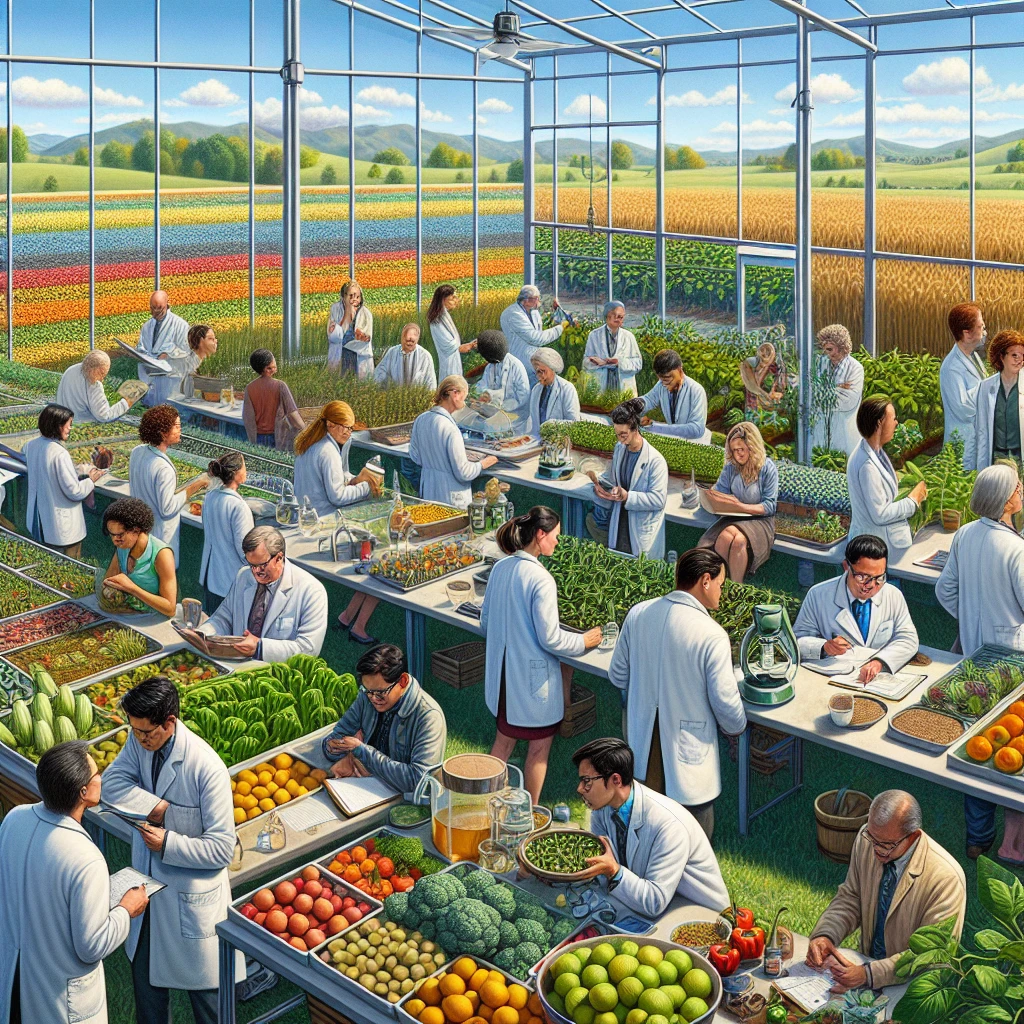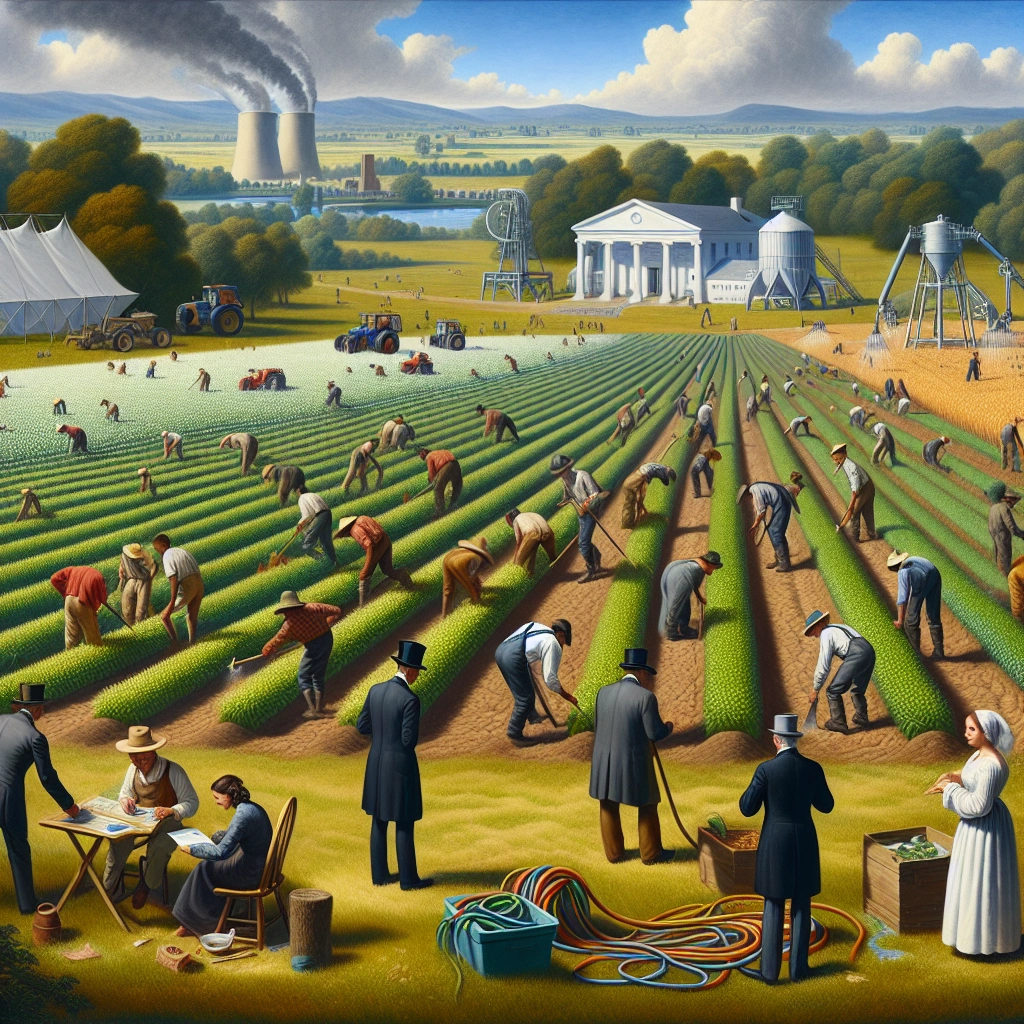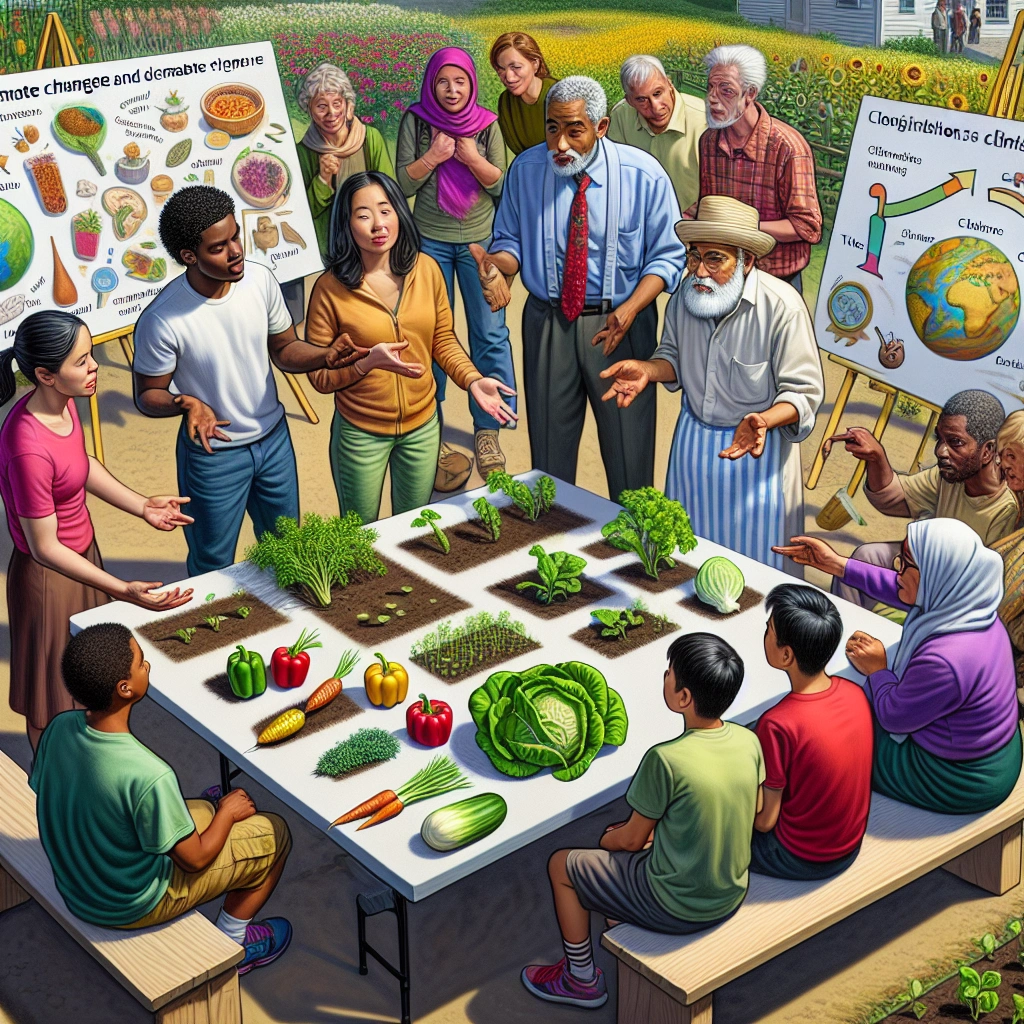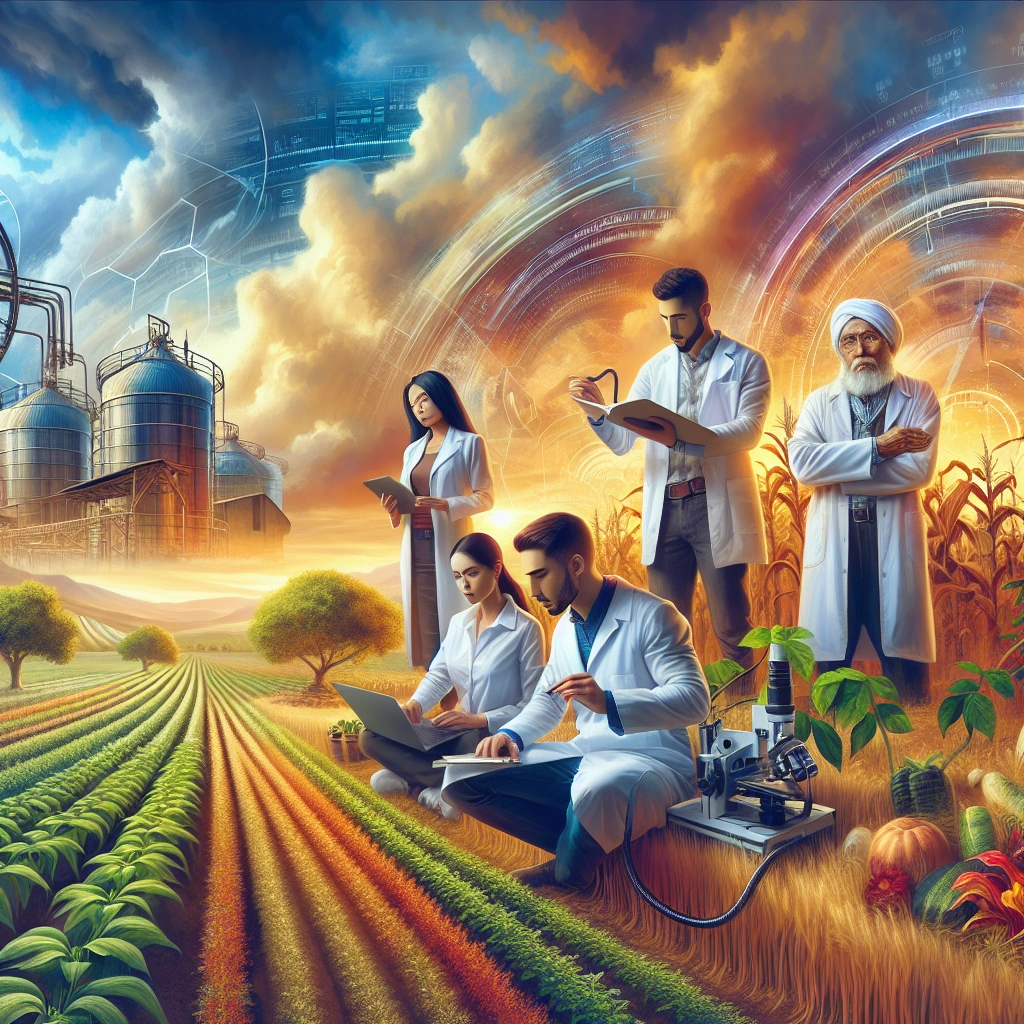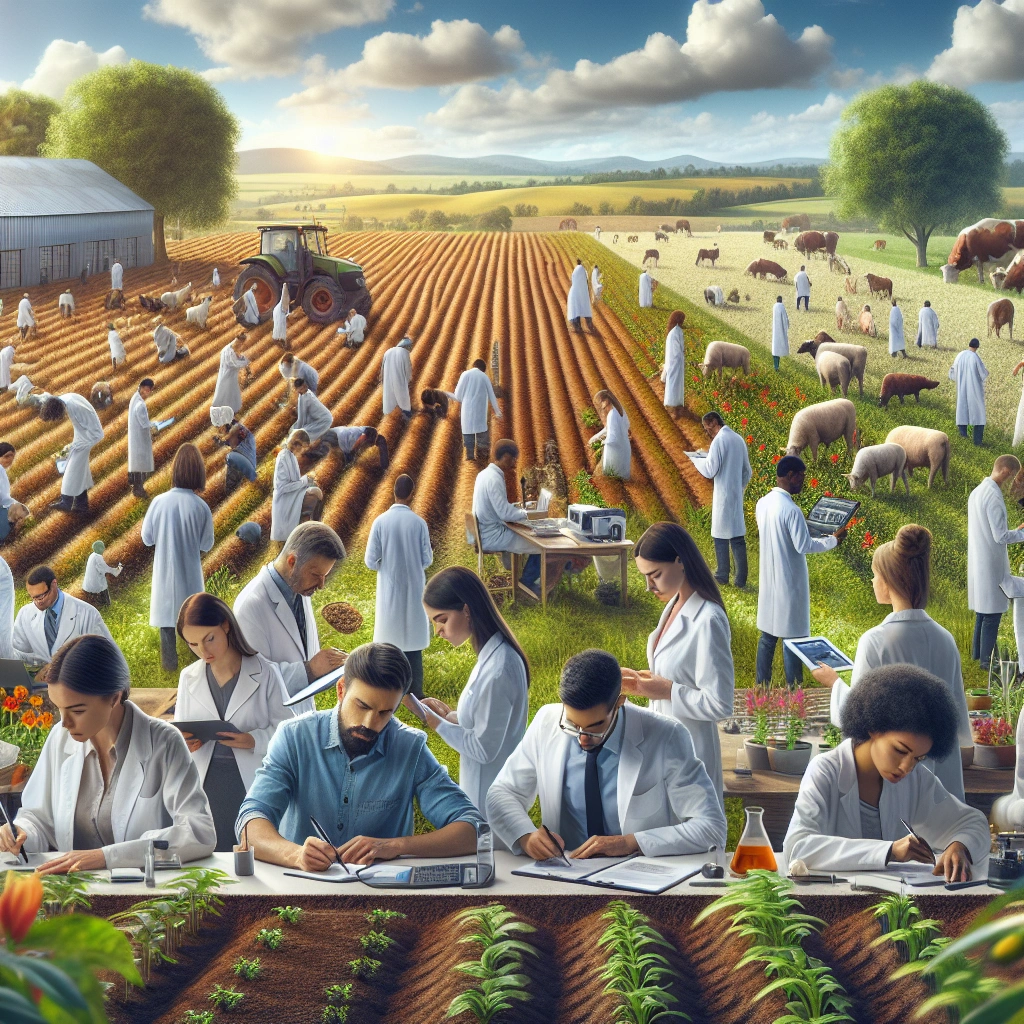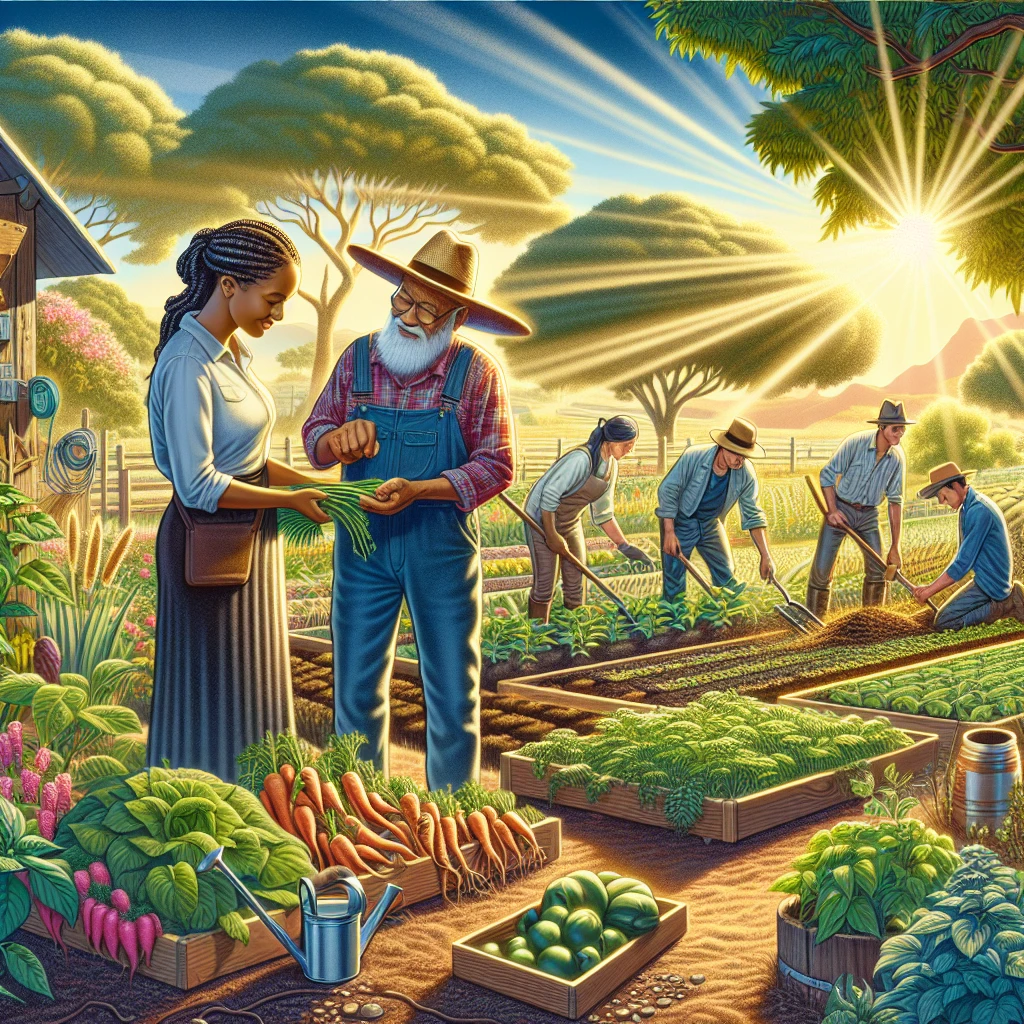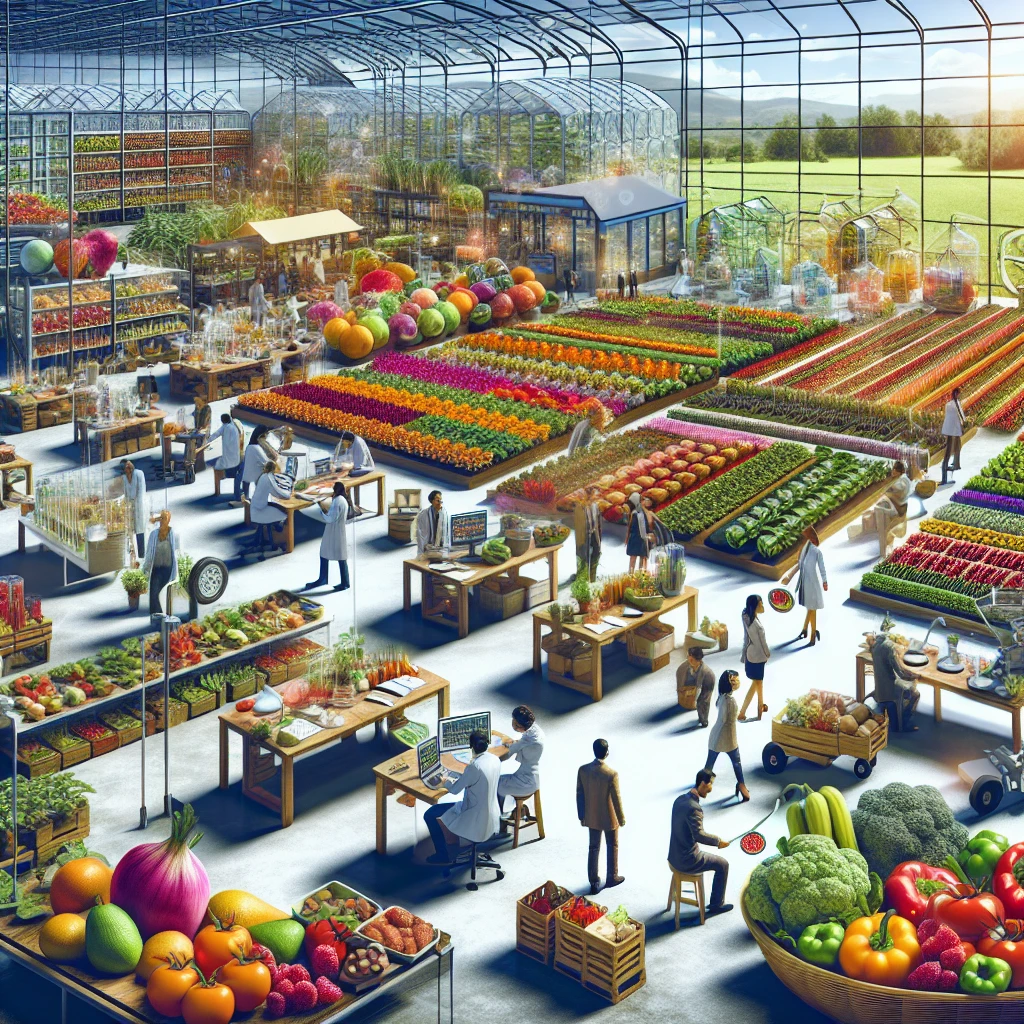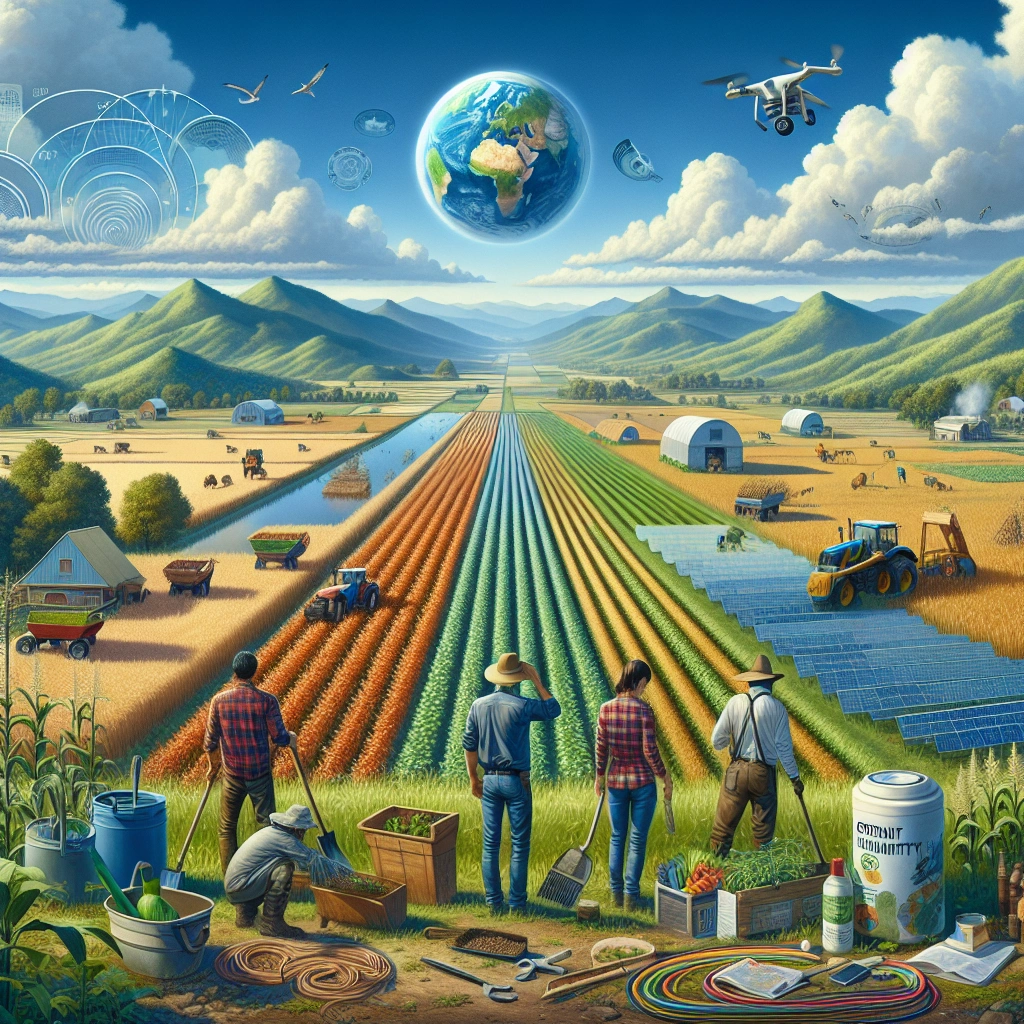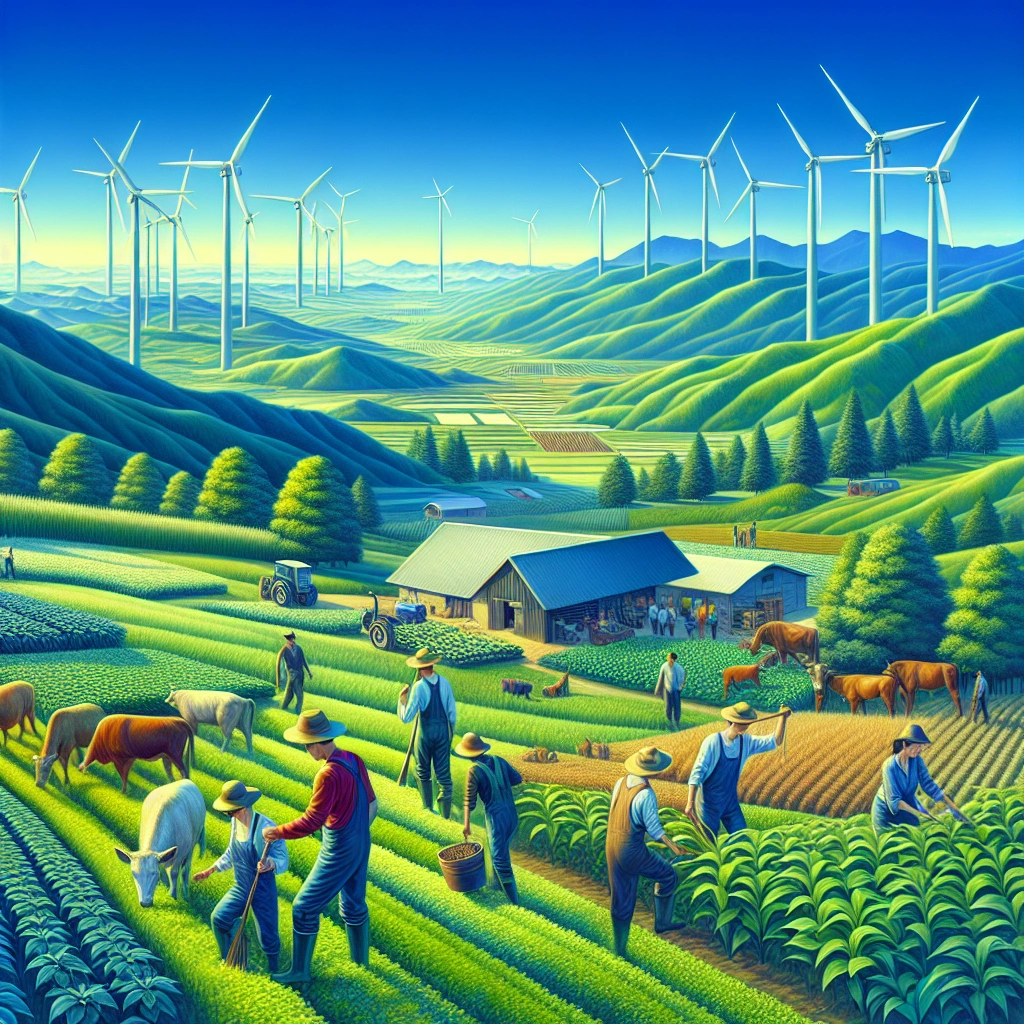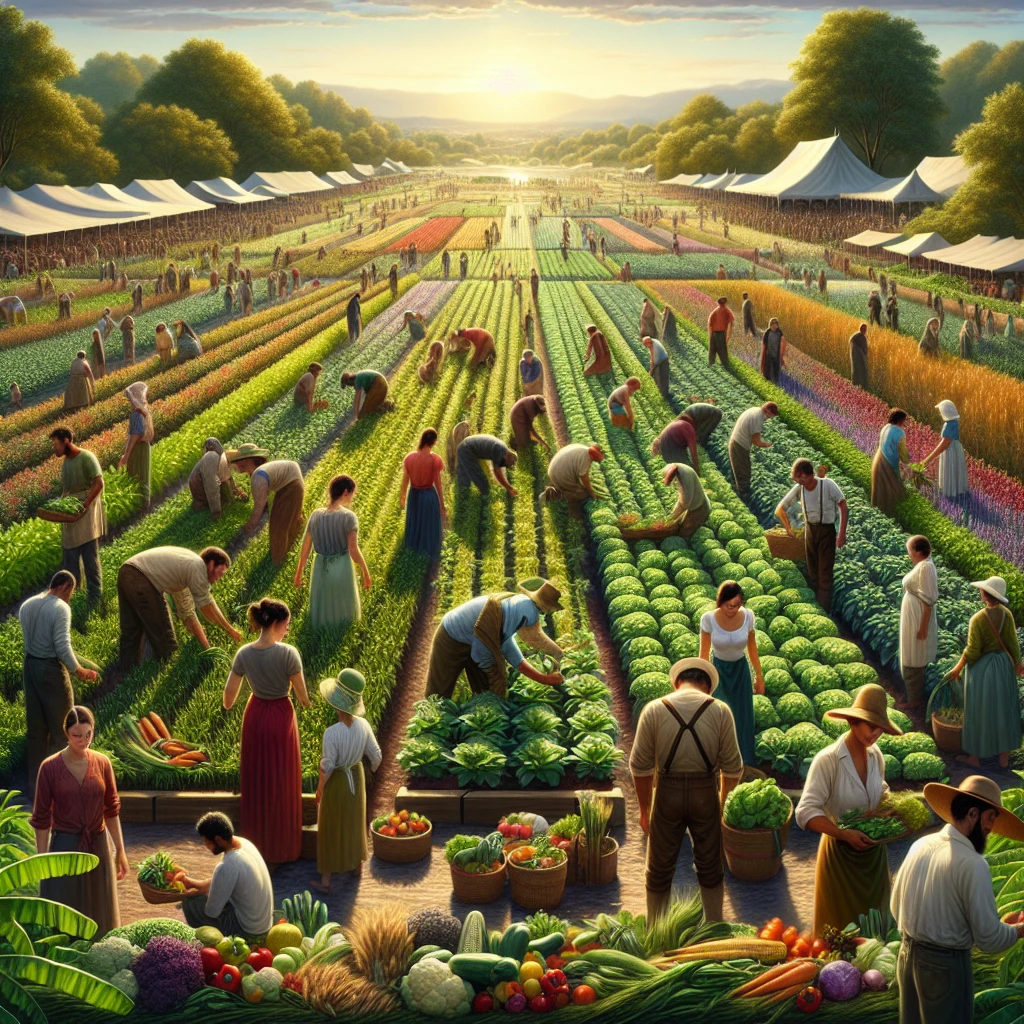

Climate change can significantly impact food security, which refers to the availability, access, and stability of food over time. Understanding the impact of climate change on food security is crucial for addressing global hunger and ensuring a sustainable food supply.
Research on this topic is currently focused on the effects of climate change on food availability, access, utilization, and the overall stability of the food system. Studies also examine the relationship between climate, ecosystems, and human well-being, as well as the potential disruptions to food production, transportation, and storage.
The importance of this research is underscored by the rising global food insecurity, largely attributed to climate phenomena such as extreme weather events and changes in precipitation patterns.
Check out this Youtube video: “Developing Resilience to Climate Change and Achieving Food Security” for insightful research topics on climate change and food security.
The Impact of Climate Change on Food Security
Effects of changing weather patterns on crop production
Changing weather patterns, including extreme temperatures and precipitation, can significantly impact crop production. For example, heavy rainfalls can lead to soil erosion, posing a major threat to sustainable crop production.
Additionally, droughts can lead to reduced soil moisture, directly affecting crop growth and yield.
Impact of extreme weather events on food availability
Extreme weather events such as floods and droughts have a direct impact on food availability. These events can lead to crop failures and drastic reductions in crop yield, ultimately affecting the overall food supply.
For instance, in Sub-Saharan Africa, food availability has been severely affected due to crop failures caused by extreme weather events.
Disruption of food supply chains due to climate-related factors
Climate change also poses a threat to food supply chains. More frequent extreme weather events associated with climate change can disrupt the global supply chain, leading to shortages and delays in food distribution and access.
For instance, the semiconductor shortage exacerbated by climate-related disruptions has led to slowed production of microchip-dependent cars, affecting the overall food supply chain.
Research Topics on Climate Change and Food Security
Assessing the impact of temperature changes on crop yields
Research Topic: The impact of temperature changes on crop yields can be assessed by studying the specific temperature thresholds for different crops and identifying the regions most susceptible to temperature variations. For example, assessing the effect of extreme heat on wheat yields in the Midwest region of the United States could provide valuable insights into the vulnerability of staple crops to rising temperatures.
Studying the role of water scarcity in affecting food security
Research Topic: The role of water scarcity in affecting food security can be studied through an analysis of water management strategies in agriculture. For instance, understanding the impact of drought-resistant irrigation techniques on crop production in arid regions like the Sahel can provide valuable insights into mitigating the effects of water scarcity on food security.
Understanding the connection between climate change and food access in vulnerable populations
Research Topic: The connection between climate change and food access in vulnerable populations can be understood by examining the displacement of indigenous communities due to environmental changes. For instance, studying the impact of melting ice caps on the traditional food sources of Arctic indigenous populations can shed light on the challenges these communities face in accessing nutritious food.
Analyzing the potential for climate-resilient agriculture to mitigate food security risks
Research Topic: The potential for climate-resilient agriculture to mitigate food security risks can be analyzed by investigating the adoption of agroecological practices in regions prone to extreme weather events. For example, assessing the implementation of diversified farming systems in Southeast Asia can reveal the efficacy of climate-resilient practices in enhancing food security amidst environmental uncertainties.
| Research Topic | Example |
|---|---|
| Assessing the impact of temperature changes on crop yields | Studying the effect of extreme heat on wheat yields in the Midwest |
| Studying the role of water scarcity in affecting food security | Analyzing drought-resistant irrigation techniques in the Sahel |
| Understanding the connection between climate change and food access in vulnerable populations | Examining the impact of melting ice caps on Arctic indigenous communities |
| Analyzing the potential for climate-resilient agriculture to mitigate food security risks | Investigating the adoption of diversified farming systems in Southeast Asia |
These research topics delve into key aspects of climate change and food security, offering valuable insights for developing sustainable solutions in the face of environmental challenges.
Solutions to Mitigate the Impact of Climate Change on Food Security
Implementing sustainable farming practices to adapt to changing climate conditions
– Implementing sustainable farming practices is crucial for adapting to the changing climate. This involves techniques like wind machines and overhead irrigation to mitigate the impact of extreme weather patterns. Farmers can also choose appropriate plant varieties and diversify their markets and crops to enhance resilience.
Developing climate-smart agricultural technologies to enhance food production
– The development of climate-smart agricultural technologies is vital to improving food production in the face of climate change. This includes utilizing Earth observation satellite systems to monitor crop conditions and pests, as well as integrating crop-livestock-forestry systems and pursuing sustainable forestry. These technologies can help farmers adapt and thrive in challenging climatic conditions.
Promoting policies for equitable distribution of food resources in the face of climate challenges
– Promoting policies for the equitable distribution of food resources is essential to ensure that the impact of climate change on food security is mitigated. This involves fostering access to healthier, sustainable food and providing support to local leaders to enhance access and distribution of food resources. The goal is to create a sustainable and equitable food system that can withstand the challenges posed by climate change.
Investing in research and innovation for climate-resilient food systems
– Investing in research and innovation is critical for developing climate-resilient food systems. This includes advancing climate-smart crop production practices and technologies, as well as strengthening adaptive solutions and resilience against changing weather patterns. Moreover, collaborations with experts and entrepreneurs are essential to identify and implement innovative solutions that can transform agriculture and ensure food security in the face of climate change.
| Examples of Climate-Resilient Practices |
|---|
| 1. Integrating Crop-Livestock-Forestry Systems |
| 2. Rehabilitating Degraded Pastures |
| 3. Planting Agroforestry Systems |
| 4. Pursuing Sustainable Forestry |
Addressing the impact of climate change on food security requires a multi-faceted approach that encompasses sustainable farming practices, technological advancements, equitable food distribution policies, and significant investments in research and innovation. By implementing these solutions, we can work towards building a resilient food system that can withstand the challenges posed by a changing climate.
Remember, when it comes to climate change and food security, innovation and adaptation are key to securing our future food supply.
Let’s make agriculture great again!
Government Policies and Initiatives Addressing Climate Change and Food Security
The current government efforts to combat the impact of climate change on food security involve significant investments in risk insurance pools, such as the Africa Disaster Risk Financing Program and ARC Ltd, receiving $12 million each to aid in mitigating the effects of extreme weather events and food insecurity exacerbated by climate change. Additionally, the U. S. Government’s Global Food Security Strategy 2022-2026 is a comprehensive approach aimed at addressing the short- and long-term effects of climate change on agricultural practices, labor, and food stability.
International agreements and action plans related to this issue have culminated in essential accords such as the Kyoto Protocol and the Paris Agreement. However, there is divergent dialogue regarding responsibility, tracking emissions-reduction goals, and compensating harder-hit countries.
These international efforts are crucial in addressing the global impact of climate change on food security and setting the stage for coordinated action in the future.
Awareness and Education on Climate Change and Food Security
Importance of public awareness and education in addressing food security challenges
The importance of public awareness and education in addressing food security challenges cannot be overstated. By educating the public about the impact of climate change on food security, we can empower individuals to make informed decisions and take action to mitigate its effects.
For instance, raising awareness about sustainable farming practices and food waste reduction can play a significant role in ensuring food security in the face of a changing climate.
Moreover, through educational campaigns and outreach programs, communities can be empowered to adapt to climate-resilient agricultural practices, leading to greater food security. By arming the public with knowledge about the correlation between climate change and food availability, we can foster a sense of responsibility and urgency in addressing these critical issues.
Role of educational institutions in research and advocacy for climate-resilient food systems
Educational institutions have a pivotal role in researching and advocating for climate-resilient food systems. By conducting in-depth research on sustainable agriculture, innovative farming techniques, and climate adaptation strategies, these institutions can contribute significantly to addressing the challenges posed by climate change on food security.
Furthermore, educational institutions serve as platforms for promoting advocacy and awareness initiatives related to climate-resilient food systems. They can foster collaboration and knowledge exchange among students, researchers, and the wider community, driving the development and implementation of impactful solutions.
Through these efforts, educational institutions become catalysts for positive change, driving advancements in climate-resilient food systems and enhancing global food security.
| Educational Institutions | Role in Climate-Resilient Food Systems |
|---|---|
| Research on sustainable agriculture | Conducting in-depth studies on sustainable farming practices |
| Advocacy for climate adaptation | Promoting initiatives for climate-resilient food systems |
| Knowledge exchange | Fostering collaboration and knowledge sharing among stakeholders |
| Driving positive change | Catalyzing advancements in global food security |
Public awareness and the active involvement of educational institutions are essential in addressing the challenges presented by climate change to food security. Through education and research, we can pave the way for a more sustainable and resilient food system capable of withstanding the impacts of a changing climate.
Collaborative Efforts in Addressing Climate Change and Food Security
The role of international organizations in promoting sustainable food production and distribution is vital in addressing the challenges of climate change and food security. Organizations like the United Nations’ Food and Agriculture Organization (FAO) and the World Food Programme (WFP) play a significant role in setting global standards, conducting research, and implementing projects to promote sustainable agricultural practices, improve food distribution systems, and address food insecurity in the face of changing climate patterns.
Their efforts are crucial in ensuring that food supplies remain stable and sustainable amidst climate-related disruptions.
Partnerships between governments, non-governmental organizations, and private sectors for climate-smart solutions are essential in tackling the multifaceted challenges posed by climate change and food security. Collaborative efforts between these entities facilitate the development and implementation of innovative solutions, such as climate-resilient agricultural practices, efficient food distribution networks, and sustainable food production technologies.
By working together, governments, NGOs, and private sectors can leverage their respective strengths to create comprehensive and impactful strategies that address the complex interplay between climate change and food security.
Here’s a simple comparison table illustrating the collaborative efforts of different entities:
| Entity | Role |
|---|---|
| International Organizations | Setting global standards, conducting research, and implementing projects for sustainable food production and distribution |
| Governments | Providing policy support, infrastructure, and funding for climate-smart solutions |
| Non-Governmental Organizations (NGOs) | Implementing community-focused initiatives and grassroots programs |
| Private Sectors | Developing and deploying innovative technologies for climate-resilient agriculture and sustainable food production |
The collaboration between international organizations, governments, non-governmental organizations, and private sectors is a powerful force in addressing the interconnected challenges of climate change and food security. By working together, these entities can drive effective and sustainable solutions to ensure food production and distribution remain resilient in the face of changing climate patterns.
Case Studies on Climate Change and Food Security
Examples of regions or communities affected by climate change and food insecurity
- In Africa, agricultural productivity has plummeted by 34% due to climate change, particularly impacting the Horn of Africa with severe droughts in Ethiopia, Kenya, and Somalia for the past 70 years.
- The northern Great Plains anticipates escalating hail risks and more frequent storms, exacerbating food insecurity in the region.
Successful initiatives or projects addressing food security challenges in the context of climate change
- The U. S. Department of Agriculture has outlined $5 billion in planned investments to combat hunger and malnutrition, aiming to build sustainable and inclusive food systems.
- The United Nations Food Systems Summit witnessed robust efforts by the U. S. Department of Agriculture to address the challenges of COVID-19, conflict, inequity, and climate change, to sustainably reduce global poverty, hunger, and malnutrition.
| Initiatives/Projects | Impact |
|---|---|
| U. S. Agriculture Investments | $5 billion toward combating hunger and malnutrition |
| UN Food Systems Summit | Addressing challenges of COVID-19, conflict, inequity, and climate change |
Data Collection and Analysis in Climate Change and Food Security Research
Importance of reliable data and evidence-based research in understanding this complex issue
Reliable data and evidence-based research are critical in understanding the intricate dynamics of climate change and its impact on food security. Without accurate data, it’s like trying to drive a car with a blindfold on – you’re just hoping for the best, but you’re likely to crash. The use of scientific evidence and reliable data allows us to truly comprehend the scale of climate change effects and make informed decisions to secure our food resources for the future. It’s like building a sturdy house – you need a solid foundation of data to ensure the structure can withstand the storms of climate change.
For example, renowned environmentalist, David Attenborough, emphasizes the need for reliable data in understanding climate change and its impact on food security: “Without accurate data, we are simply guessing at the magnitude of the problem and the solutions needed.” This quote perfectly encapsulates the essence of why reliable data is vital in addressing the complex issue of climate change and food security.
Use of technology and innovation in data collection and analysis for climate change and food security studies
Technology and innovation play a pivotal role in gathering and analyzing data related to climate change and food security. Just like how a chef uses state-of-the-art tools to prepare a delicious meal, researchers leverage technology to collect and interpret data with greater precision and efficiency. For instance, advanced satellite imaging technology provides invaluable insights into changes in vegetation, land use, and climate patterns, enabling scientists to monitor and analyze the impact of climate change on crop yields and food security.
Moreover, innovative data collection methods, such as remote sensing and IoT devices, offer real-time monitoring of environmental parameters, allowing for proactive measures to mitigate food security risks induced by climate change. It’s similar to having a sophisticated radar that forewarns us about approaching storms, equipping us with the ability to brace for impact and take preventive measures to safeguard our food sources.
| Innovative Data Collection Methods |
|---|
| 1. Remote Sensing |
| 2. IoT Devices |
| 3. Satellite Imaging |
The integration of technology and innovation in data collection and analysis not only enhances our understanding of climate change’s impact on food security but also empowers us to develop effective strategies to address these challenges proactively. It’s like having a powerful telescope that allows us to see far into the future, enabling us to make informed decisions today to ensure a sustainable and secure food supply for tomorrow.
Funding and Resources for Research on Climate Change and Food Security
Challenges and opportunities in securing funding for research in this field
Securing funding for research in climate change and food security presents both challenges and opportunities. Traditional sources like government grants offer potential avenues, yet competition can be fierce, making it crucial to demonstrate the innovative and impactful nature of the research. Private sector partnerships also bring promise, as companies increasingly focus on sustainability. By emphasizing the potential returns on investment and the societal benefits, researchers can leverage these partnerships for financial support. Additionally, crowdfunding initiatives provide a unique opportunity to engage the public and gain support for research projects, tapping into a larger community of individuals passionate about addressing climate change and food security challenges.
Availability of resources and support for researchers and organizations working on this topic
The availability of resources and support for researchers and organizations working on climate change and food security is a critical driver of progress in this field. Collaboration with international organizations and NGOs can offer access to diverse funding streams and support networks. Researchers can also tap into university partnerships and leverage their existing infrastructure, knowledge, and personnel to drive forward research initiatives. Moreover, dedicated research grants from organizations such as the National Institutes of Health and the Environmental Protection Agency serve as crucial lifelines, providing the necessary financial backing for comprehensive and impactful research projects. By leveraging these resources and fostering strategic collaborations, researchers and organizations can make significant strides in addressing the complexities of climate change and food security.
| Funding Source | Description |
|---|---|
| Government Grants | Competitive but offer long-term financial security for impactful research initiatives. |
| Private Sector Partnerships | Present opportunities for innovative projects and provide access to funds from sustainability-focused companies. |
| Crowdfunding Initiatives | Engage the public and harness community support for impactful research projects addressing climate change and food security. |
This informative table outlines the diversity and potential of different funding sources for climate change and food security research, offering researchers and organizations valuable insights into securing financial support.
Ethical and Social Considerations in Climate Change and Food Security Research
Addressing ethical implications of climate change on global food systems
Climate change presents ethical implications for global food systems as it exacerbates food insecurity and poses threats to human rights and social justice. The disproportionate impact of climate change on vulnerable communities raises concerns about fairness in accessing food resources.
For example, extreme weather events can disrupt agricultural production, leading to food shortages in already marginalized areas. This ethical dilemma calls for a reevaluation of policies and initiatives to ensure equitable food distribution and access for all individuals, regardless of socio-economic status or geographical location.
Social justice and equity in ensuring food security in the face of climate challenges
Ensuring food security in the face of climate challenges embodies the principles of social justice and equity. It requires addressing systemic inequalities and prioritizing fair practices within food systems.
For instance, sustainable agricultural systems should prioritize the well-being and dignity of farm workers, tenant farmers, and rural communities. Additionally, investment in local and sustainable food systems should aim to mitigate disparities and promote equal opportunities for all individuals.
By promoting awareness and education on the link between climate change and food security, society can work towards achieving food justice and social equity on a global scale.
Integrating Indigenous Knowledge in Climate Change and Food Security Studies
Recognizing the value of indigenous knowledge in adapting to climate change impacts on food systems
Recognizing the value of indigenous knowledge in adapting to climate change impacts on food systems is crucial for developing sustainable and effective solutions. Indigenous communities have intricate knowledge of their local environments, including traditional farming techniques, climate patterns, and natural resource management.
Incorporating this knowledge into climate change adaptation strategies can enhance the resilience of food systems, ensuring the preservation of diverse crops and livestock breeds that are well-suited to changing environmental conditions.
Collaboration with indigenous communities for sustainable solutions to food security challenges
Collaboration with indigenous communities for sustainable solutions to food security challenges is paramount in addressing the complex dynamics of climate change impacts. Working closely with indigenous groups fosters a mutual learning process, where scientific research and traditional knowledge intersect to create innovative approaches.
By actively involving indigenous communities in decision-making processes and project implementation, it becomes possible to design context-specific interventions that uphold cultural traditions, promote food sovereignty, and mitigate the vulnerabilities faced by these communities.
| Indigenous Knowledge | Climate Change Impacts |
|---|---|
| Traditional farming techniques | Soil fertility and water availability |
| Climate patterns awareness | Changes in rainfall patterns and temperatures |
| Natural resource management | Resilience of crops and livestock |
Ensure the respect and recognition of indigenous knowledge is foundational to effective climate change and food security initiatives.
Future Trends and Innovations in Climate Change and Food Security Research
The emerging technologies and innovations in sustainable agriculture and food production are revolutionizing the way we address climate change and food security. Advanced tools such as automated harvesters, drones, and autonomous tractors are transforming traditional farming methods, enhancing efficiency and productivity.
Additionally, satellite and GPS technologies, along with smart sensors, are playing a crucial role in optimizing farming practices and resource management. These technological advancements are vital for achieving sustainability goals in agriculture and enhancing food security.
Furthermore, the widespread adoption of sustainable agricultural practices, including no-till farming and crop rotation, is significantly reducing greenhouse gas emissions, fostering soil health, and enhancing overall productivity.
In the coming years, we can anticipate remarkable developments in climate change and food security research, driven by the pressing need to mitigate the adverse impacts of climate change on global food systems. These developments are likely to focus on improving soil health through increased organic carbon content, thereby enhancing water retention and drought resilience.
Additionally, research efforts will aim to address the disruptive effects of climate change on food availability, access, and quality, especially in regions at high risk of climate impacts. Moreover, innovations in agricultural technology and sustainable practices will continue to be pivotal in shaping the future of food production, ensuring global food security, and safeguarding the environment.
| Emerging Technologies and Innovations in Sustainable Agriculture |
|---|
| Automation in farming processes |
| Satellite and GPS technologies |
| Smart sensors and resource management |
| Sustainable agricultural practices |
Recommended Amazon Products for Research Topics on Climate Change and Food Security
Here’s a curated list of products that can help you in your research on climate change and food security. These recommendations are based on their relevance to the research topics, positive reviews, and competitive pricing.
Environmental Science for Dummies


This book provides a comprehensive overview of environmental science, including its impact on food security. It covers topics such as climate change, sustainable agriculture, and ecosystem management.
Global Weirdness: Severe Storms, Deadly Heat Waves, Relentless Drought, Rising Seas, and the Weather of the Future


This book explores the effects of climate change on extreme weather events and their impact on food availability. It offers insights into the future of our planet’s climate and its implications for food security.
Hydroponic Grow Kit


This hydroponic grow kit allows you to conduct hands-on research on climate-resilient agriculture and its potential to mitigate food security risks. It is easy to use and provides a valuable learning experience.
Data-Logging Weather Sensor


This weather sensor enables you to collect real-time data on changing weather patterns, which is essential for studying the impact of temperature changes and extreme weather events on agriculture. It is compatible with various research applications.
Climate Change and Food Security: Adapting Agriculture to a Warmer World


This book offers in-depth insights into climate-resilient agriculture and its role in mitigating food security risks. It provides practical solutions and case studies to support your research efforts.
Top Recommended Product for Research Topics on Climate Change and Food Security
If you’re looking for the best solution for conducting research on climate change and food security, we highly recommend Environmental Science for Dummies. This comprehensive book covers a wide range of topics relevant to your research, making it an invaluable resource.


Ready to enhance your understanding of climate change and food security? Check out Environmental Science for Dummies today for the best results!


Pros and Cons:
| Product | Pros | Cons |
|---|---|---|
| Environmental Science for Dummies | Comprehensive coverage of environmental science topics | None |
| Global Weirdness | Detailed insights into climate change impacts | May be more focused on weather patterns |
| Hydroponic Grow Kit | Hands-on research experience | Limited to hydroponic research |
| Data-Logging Weather Sensor | Real-time weather data collection | Requires technical setup |
| Climate Change and Food Security | Practical solutions and case studies | Detailed content may be overwhelming |
Conclusion
The key research topics on climate change and food security include the impact of extreme weather events on crop production, the development of drought-resistant crops, and the utilization of sustainable agricultural practices. These research topics are crucial in finding solutions to ensure food security in the face of climate change challenges.
Furthermore, it is imperative to continue addressing the impact of climate change on food security through collaboration between scientists, policymakers, and agricultural communities. This can be achieved through the implementation of innovative technologies and initiatives aimed at building resilience in food production systems.
Advocacy for sustainable agricultural practices and policies is essential to mitigate the effects of climate change on global food systems.
In order to effectively mitigate the effects of climate change on food security, continued research, collaboration, and advocacy are necessary. It is important for stakeholders to prioritize the development of climate-smart agricultural practices and invest in the resilience of food production systems.
By working together, we can ensure a sustainable and secure food supply for future generations.

